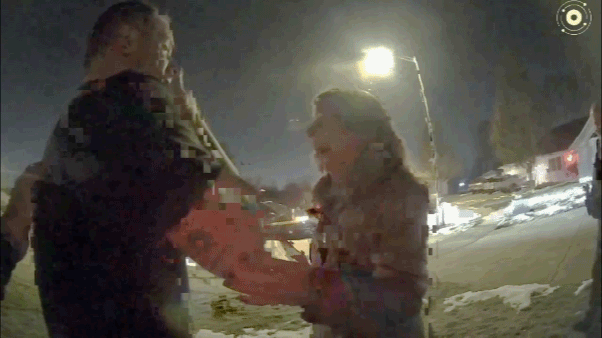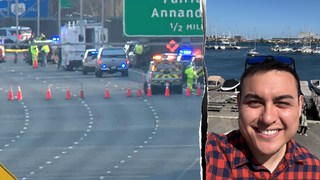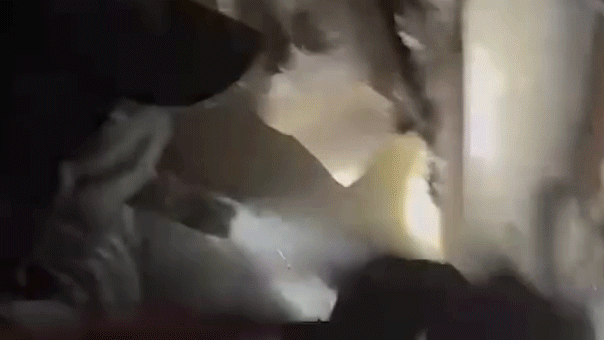San Francisco neighborhood overrun with sex workers, ‘terrible policy’: Michael Shellenberger
Founder of Environmental Progress and author Michael Shellenberger says street prostitution increased after Gov. Gavin Newsom signed legislation that decriminalizes loitering for prostitution purposes.
San Diego’s police chief blasted a controversial new California law that cops blame for sparking brazen prostitution on the streets of cities across the Golden State.
The law that went into effect last month allows people to loiter with the intent of engaging in prostitution, Chief Dave Nisleit said – and that includes traffickers, sex buyers and sex workers.
"New state laws make recovering trafficking victims more difficult while emboldening their traffickers,' Nisleit told reporters at a Tuesday news conference. "Your law enforcement officers are fighting an uphill battle when it comes to human trafficking."
Local leaders in the San Diego area this week were celebrating a successful month-long investigation into human trafficking and prostitution that nabbed 48 arrests and identified 41 suspected victims of trafficking and sex exploitation. Among those rescued were children, including one girl who was only 13 years old.
"It needs to be repealed," the police chief said of the new law. "We’re talking about a young lady who, by the age of 13, has fallen victim to this. How many more victims do we need to have in sex trafficking before we realize this is not a good law? We can address the disparities in a different manner."
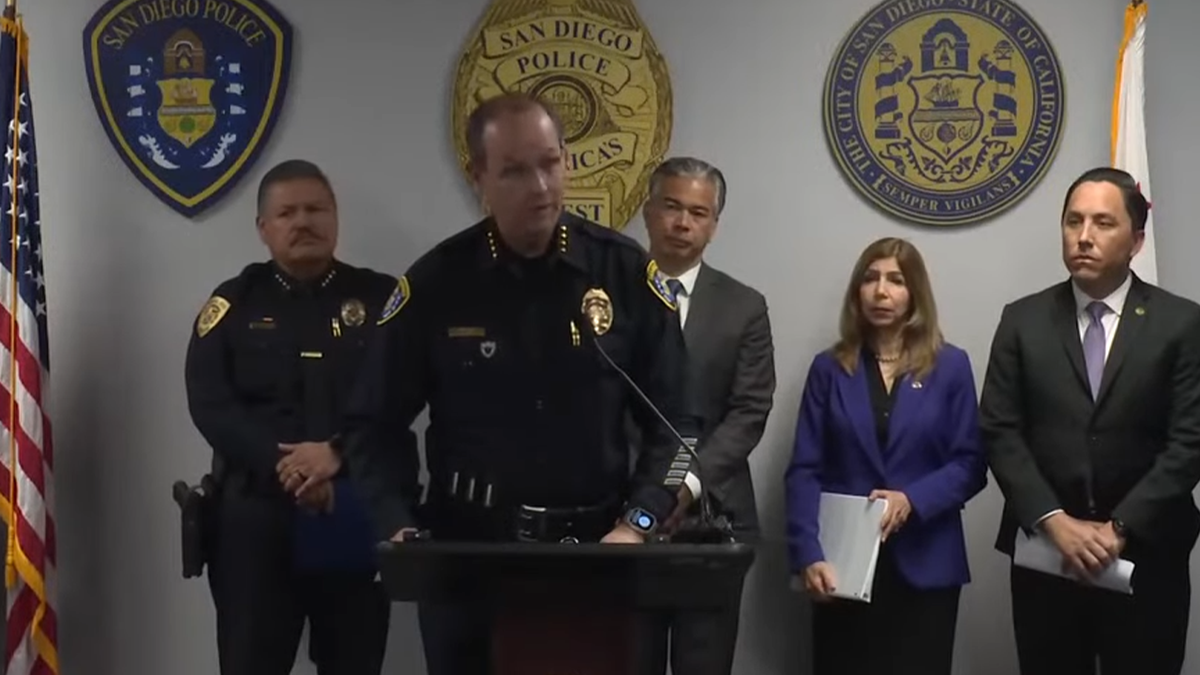
San Diego Police Department Chief Dave Nisleit speaks at a press conference. He called for repeal of a state law that some police officials blame for brazen prostitution. (California Department of Justice)
Nisleit added said he is planning to "formally request" the law be repealed.
Democratic state Sen. Scott Wiener authored the law, which he said aimed to protect transgender women allegedly disproportionately targeted by police. The law took effect on Jan. 1 and repealed a previous law that banned loitering with the intent to engage in prostitution.
"[The previous law] allowed police officers to arrest a person, not based on what they did, but based solely on how a person looks," Wiener recently told KGO-TV. "So, an officer could arrest someone because they were wearing tight clothing, high heels and extra lipstick."
San Diego County District Attorney Summer Stephan also slammed the new law during the Tuesday press conference.
"Do you know that the traffickers and the buyers were boasting on social media that because of the decriminalization new law that they just openly sell human beings for sex on our streets? Not in San Diego County," Stephan said.
Stephan said she visited areas known for prostitution and witnessed "young women being openly trafficked in broad daylight" while johns "lined up like they were going through a fast-food drive-through."
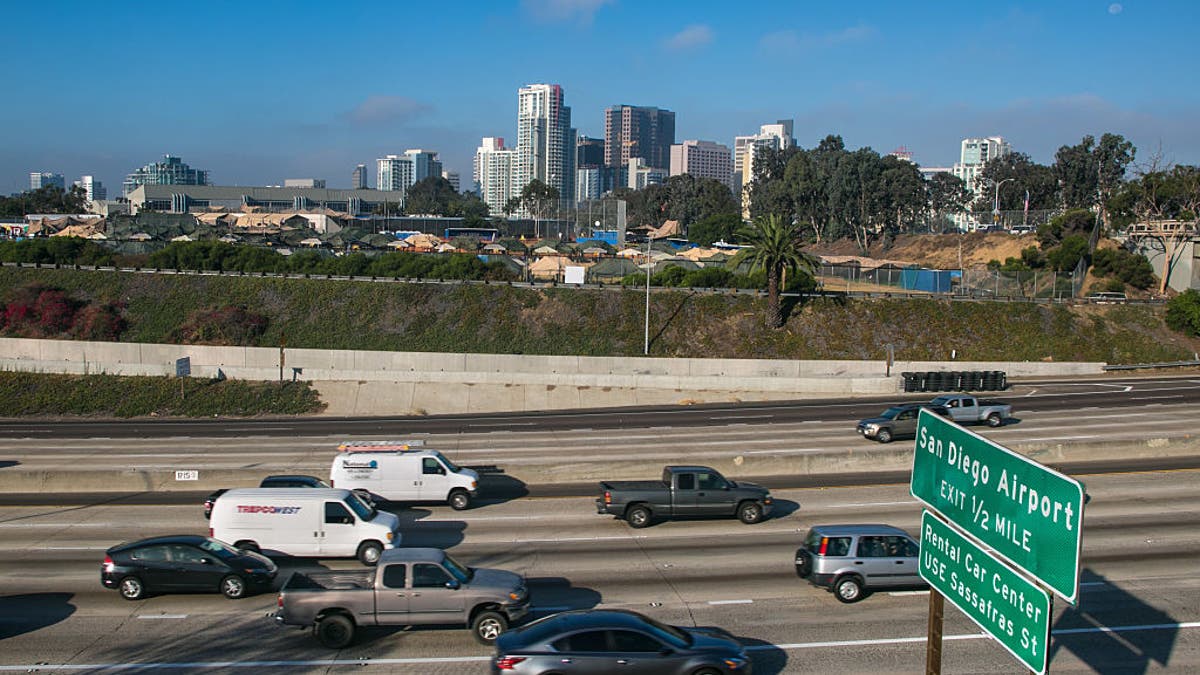
The downtown skyline is viewed from a hill overlooking Interstate 5 on July 23, 2016, in San Diego, California. (George Rose/Getty Images)
She celebrated how young girls who became victims of trafficking were rescued, and cited specifically how a 17-year-old girl and her pregnant 21-year-old sister were rescued during the operation.
"This means day and night, safeguarding people, safeguarding their dignity, demanding that people stop buying people for sex," Stephan said. "Demanding that traffickers not threaten a pregnant woman and her 17-year-old sister and force them onto the street to prostitute, while pregnant. Unacceptable – will not happen in San Diego County."
Two 16-year-old runaway girls from Arizona were also rescued during the operation, after they were allegedly forced into prostitution by physical harm and sexual abuse.
"Buyers beware: It is a crime to buy human beings for sex," Stephan said. "They're not pizza and they're not a hamburger. They’re people."
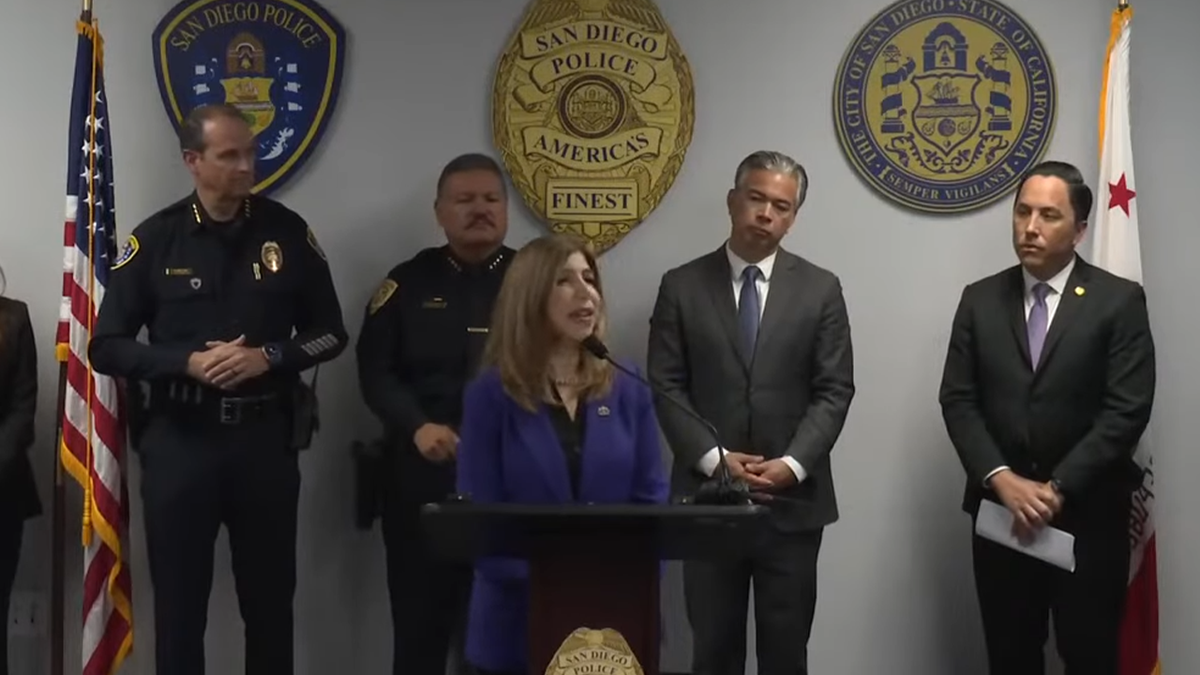
Summer Stephan, district attorney for the county of San Diego, speaking at press conference. (California Department of Justice)
Police leaders and Republicans in California have also pinned blame on the law for the apparent spike in brazen prostitution in cities including Oakland, San Francisco and Los Angeles. Wiener, however, has stuck by the bill and pushed back against such criticisms.
"The police's hands are not tied," Wiener previously told local media. "They can arrest people for soliciting, they can cite vehicles that are stopped in the middle of the street, they can arrest ‘johns,’ they can arrest pimps."
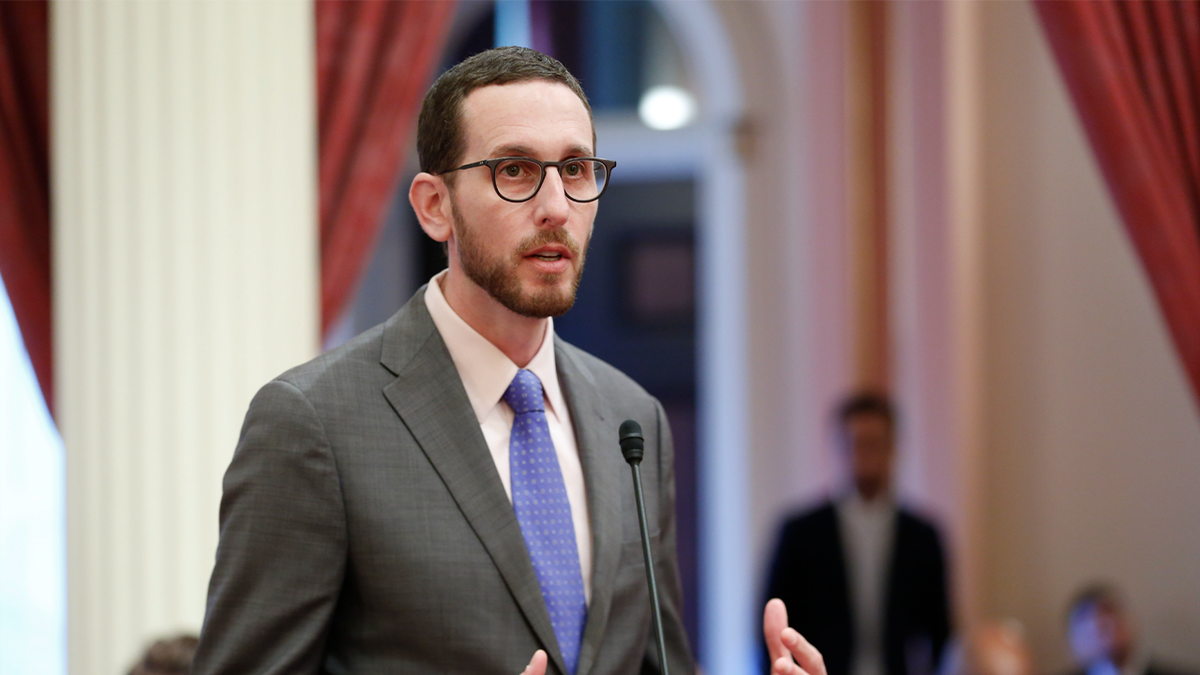
California state Sen. Scott Wiener (Scott Wiener )
The Coalition to Abolish Slavery & Trafficking (CAST), a long-standing group that advocates for survivors of sex and labor trafficking, supported the bill and previously told Fox News Digital that it endorsed repealing the former policy "because we know that reducing the criminalization of survivors will help prevent human trafficking."
"Traffickers rely on our systems to criminalize victims so that they are unable to access safety due to their records and are vulnerable to continued exploitation," Leigh LaChapelle, CAST's associate director of survivor advocacy, told Fox News.
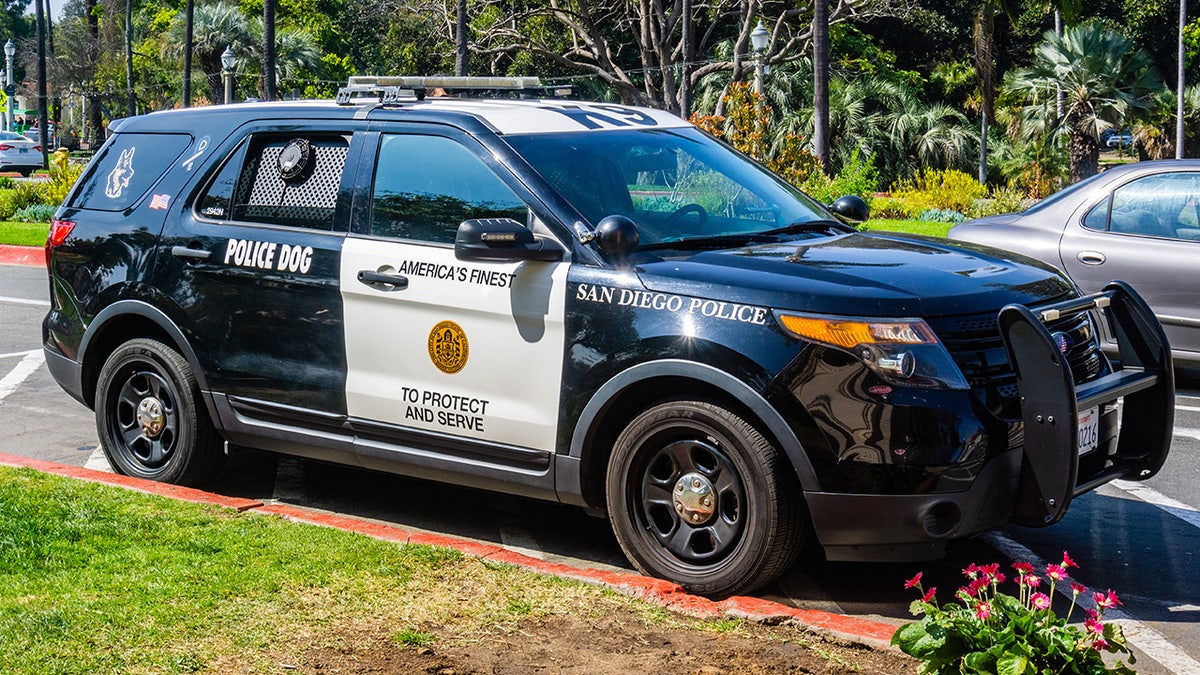
A K-9 Unit Police vehicle stationed in Balboa Park, San Diego. (iStock)
"The impact of these encounters with law enforcement reinforce already heightened stigma when someone is arrested for this offense due to the difficulties securing employment and safe housing with an arrest record relating to the sex trade," LaChapelle added. "Violation of [the previous] discriminatory law also puts immigrants in jeopardy of deportation, loss of residency or denial of reentry due to a misdemeanor conviction."
Nisleit countered that the new law hamstrings officers from making contact with potential victims to rescue them from sex slavery.
CLICK HERE TO GET THE FOX NEWS APP
"We're seeing victims of young age having their lives completely destroyed," the chief said. "And our ability to address this is difficult. I was out there again on Christmas morning, three o'clock. Multiple women out there, barely wearing any clothes, and very brazen about what they were doing when they told me what they were doing, because there is nothing that we can do."


